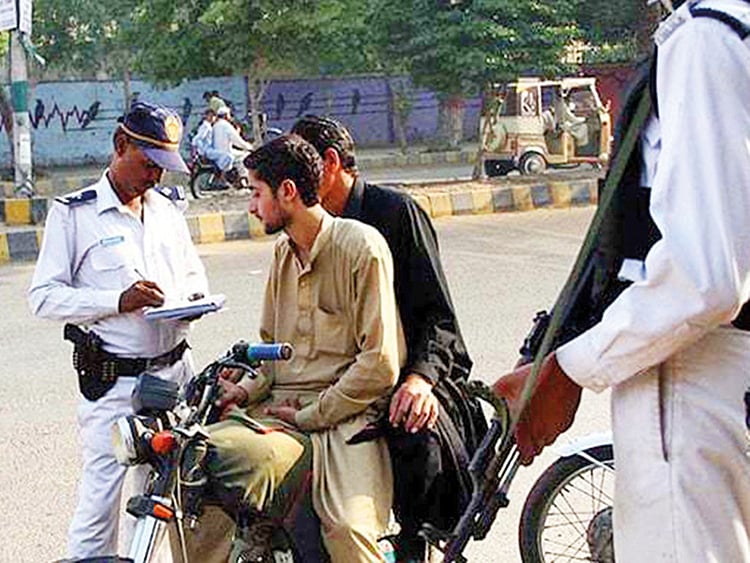Karachi’s new AI traffic system issues 2,662 e-challans worth Rs12.5 million in 6 hours
Smart cameras replace manual policing as TRACS ushers in a new era of road discipline

Dubai: Karachi’s drivers woke up to a new reality on Tuesday — an era of faceless traffic enforcement powered by artificial intelligence.
Within just six hours of launch, the city’s new e-challan system issued 2,662 digital tickets worth more than Rs12.5 million, signalling the end of leniency on the roads, Geo News reported.
According to the Karachi Traffic Police, the crackdown was swift and data-driven: 419 challans were issued for over-speeding, 1,535 for not wearing seat belts, and 507 for riding without helmets.
The system also flagged 166 red-light violations, along with smaller infractions — from tinted windows and mobile-phone use to wrong-way driving and illegal parking.
From manual to machine
The transformation follows the rollout of the Traffic Regulation and Citation System (TRACS), inaugurated a day earlier by Sindh Chief Minister Syed Murad Ali Shah at the Central Police Office.
The chief minister hailed the project as a milestone in digital governance and road transparency, replacing the city’s old, manual ticketing system with an AI-integrated, camera-based network.
TRACS at a glance
2,662 e-challans issued in first six hours of launch
Rs12.5 million collected in fines within a single day
419 challans for overspeeding
1,535 for not wearing seat belts
507 for riding without helmets
166 red-light violations
Other offences: mobile use while driving, tinted windows, wrong-way driving, illegal parking
The new system
Traffic Regulation and Citation System (TRACS) replaces manual challans
Uses AI-integrated CCTV cameras for real-time detection
Linked with Excise & Taxation, NADRA e-Sahulat, and driving licence databases
Fines can be viewed and paid online or via the TRACS mobile app
TRACS Sahulat Centres set up at traffic offices for assistance
200 cameras active in pilot phase; 12,000 planned citywide
Oversight by Citizens-Police Liaison Committee (CPLC) for transparency
“This system removes human discretion, confrontation and potential bias, ensuring fairness and accountability on the roads,” Shah said.
A smarter, fairer system
The TRACS platform links directly with key provincial databases — Excise and Taxation, Driving Licence, NADRA e-Sahulat — allowing violators to view, pay, or contest tickets online or via mobile. The TRACS app lets citizens track real-time challans, view CCTV evidence, and pay fines through secure payment gateways.
Dedicated TRACS Sahulat Centres have been set up at major traffic offices and police stations to help citizens clarify violations or appeal penalties.
First phase of a citywide net
In its pilot phase, 200 AI-enabled cameras have been installed at strategic intersections across Karachi.
The network will expand to 12,000 cameras citywide, before extending to other Sindh districts. Oversight will be provided by the Citizens-Police Liaison Committee, ensuring transparency and public accountability.
Officials said the early response was “encouraging,” noting that the system instantly detected violations previously missed under the manual regime.
For Karachi’s 25-million residents, the digital shift could mark the beginning of safer, more orderly roads — and fewer arguments at traffic stops.
Sign up for the Daily Briefing
Get the latest news and updates straight to your inbox
Network Links
GN StoreDownload our app
© Al Nisr Publishing LLC 2026. All rights reserved.
